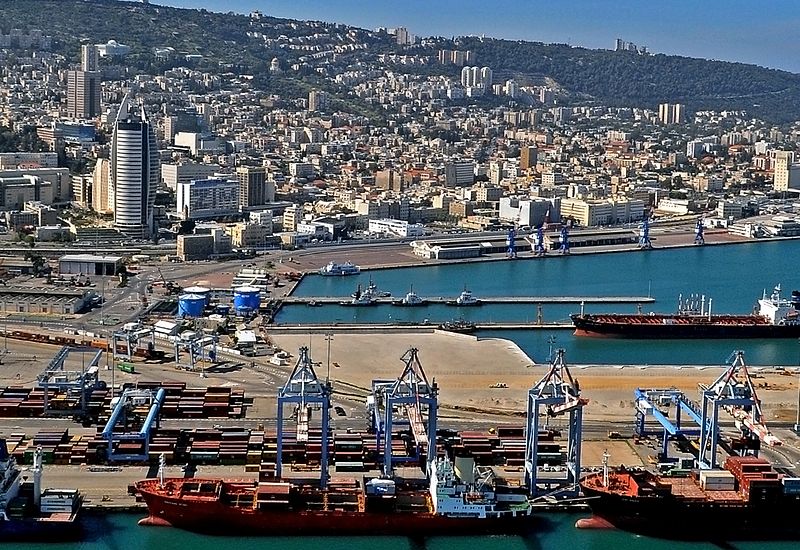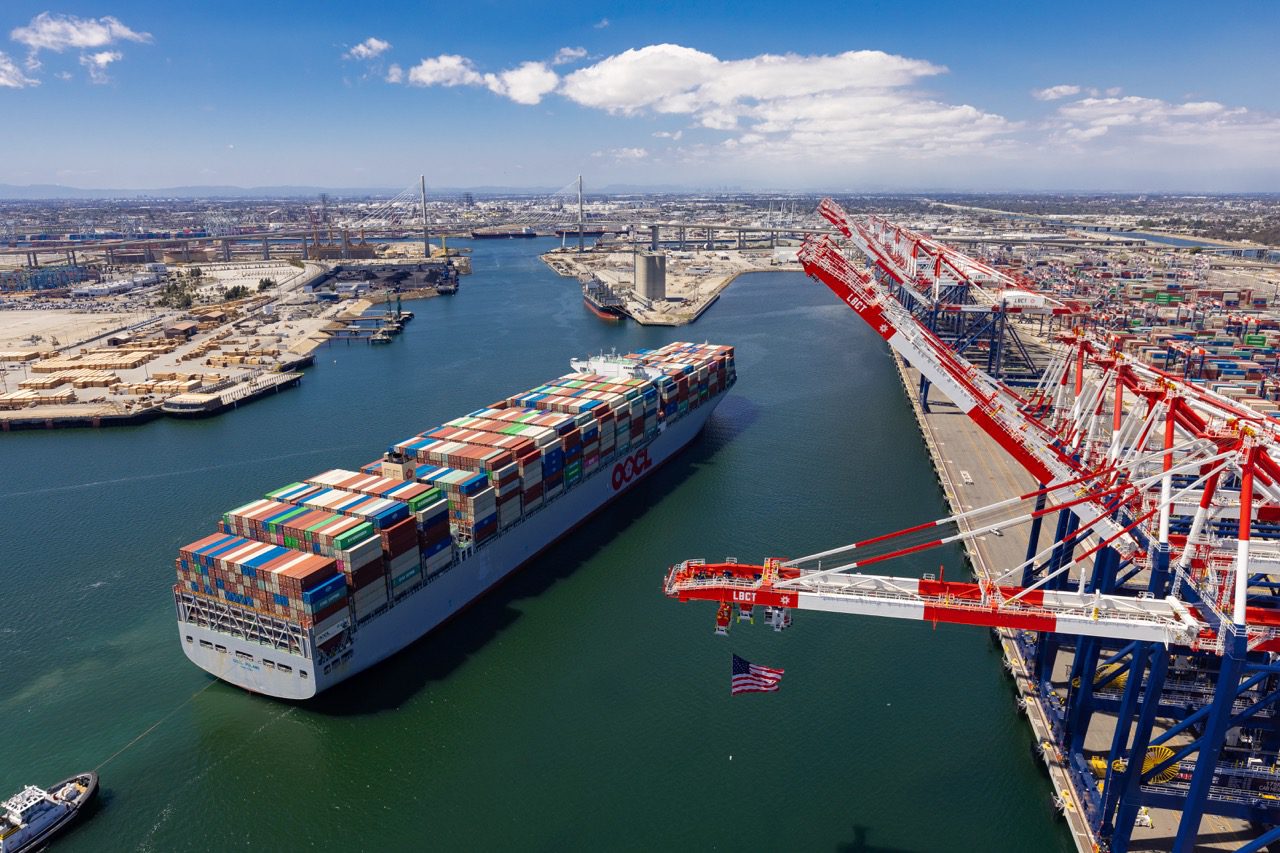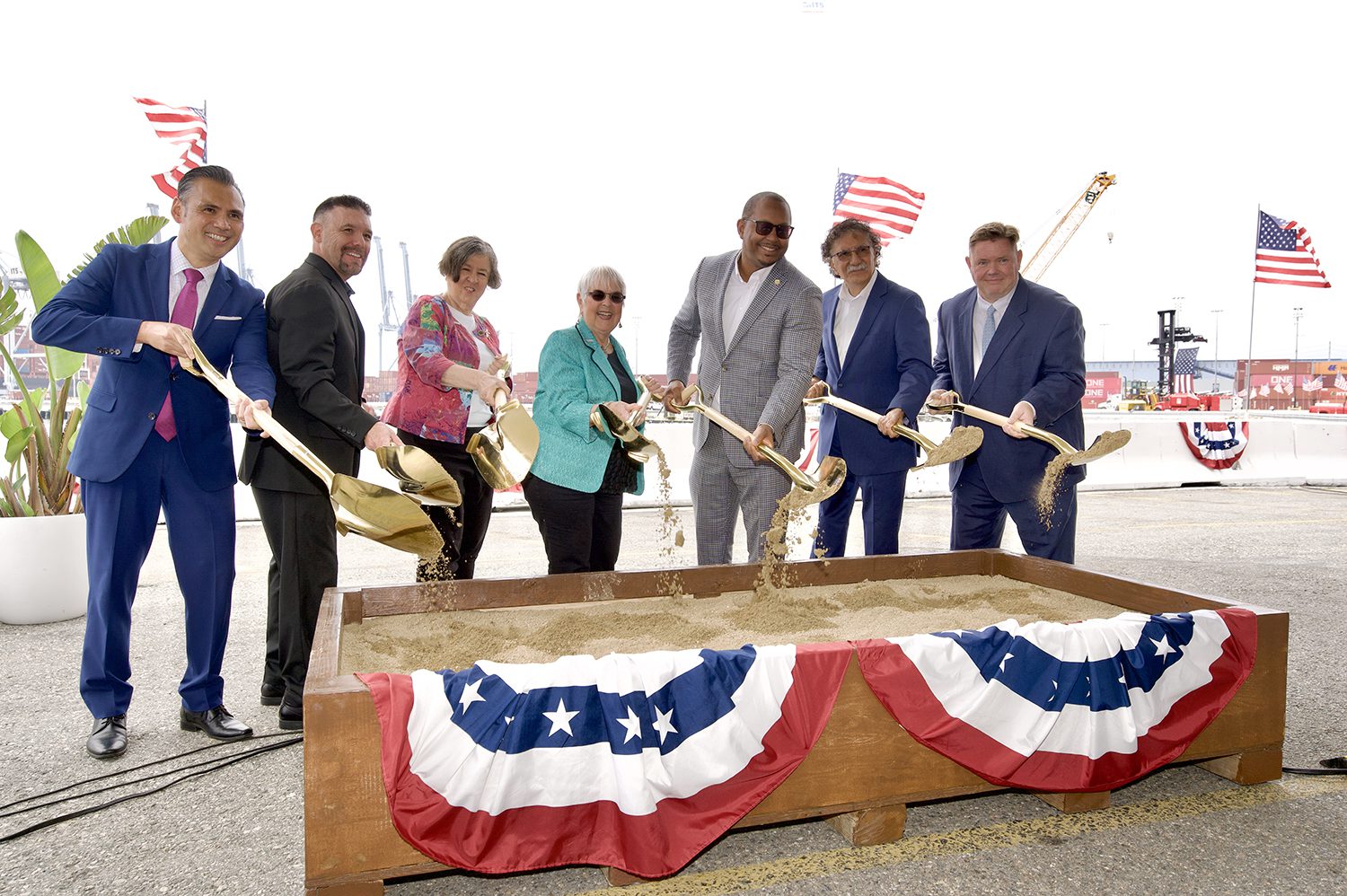Port of Haifa file photo
 By Tova Cohen and Ari Rabinovitch
By Tova Cohen and Ari Rabinovitch
TEL AVIV, May 16 (Reuters) – Israel is betting its economic future on high-tech exports but faces a low-tech bottleneck in state-owned seaports subject to work stoppages and slowdowns because of the enormous strength of their unions.
All that may be about to change.
The government, for years unwilling to risk a confrontation that could paralyse trade given that 99 percent of exports and imports are transported by ship, last month pledged to end the monopolies of the two main ports of Ashdod and Haifa.
By introducing private piers to compete with the two ports, service would improve and prices would drop across the board, Prime Minister Benjamin Netanyahu said.
The port unions – possibly the most powerful in the country with just 2,400 workers earning double the average public sector salary – are likely to be severely weakened and may have to make concessions or face layoffs.
At a time when the middle class is squeezed by slow economic growth and high costs, there is little sympathy for their plight among average Israelis, let alone businessmen.
“Labour unions in the ports are very strong, very belligerent, very egotistical and are using their control of a key state property against the state,” said Uriel Lynn, president of the Federation of Israeli Chambers of Commerce.
The unions declined to speak with Reuters for this article and referred questions to the umbrella Histadrut labour federation.
But in a rare television interview in January, the head of the Ashdod union Alon Hassan defended the role of collective bargaining and the right to strike, protected by law, and said the port workers were misunderstood.
“I have no criminal background, and sadly, they point at me in the streets like some mafioso,” he told Israel’s Channel 10.
“I see and hear and read that on the outside they don’t like us, the port workers, and me specifically. That they paint me as an extortionist, a problematic person. Something I am not.”
The unions will not budge, he said: “I am protecting the workers’ agreements that have been signed for tens of years. Fanatically. I am not open to unilateral attempts to breach such agreements.”
Articulating the government’s position, Finance Minister Yair Lapid said simply: “Let there be war.”
NETANYAHU’S MANDATE
Netanyahu was reelected in January with a mandate to do whatever it takes to fix the moribund economy, which grew 3.2 percent in 2012, its slowest pace in three years. Hundreds of thousands of Israelis staged unprecedented nationwide protests in mid-2011 over high housing costs and soaring prices.
Netanyahu has placed the blame for the high cost of living on monopolies and cartels that prevent competition and began cracking down, starting with the country’s most vital services.
On April 21 the government approved an open skies deal that liberalises aviation between Israel and Europe and is expected to bring in more foreign airlines and lower air fares. A two-day strike at flag carrier El Al and two smaller Israeli airlines ended with the government agreeing to pay a higher portion of the airlines’ security costs.
Car importers and television operators are also in Netanyahu’s sights.
Few groups wield as much power as the port workers, as gatekeepers for Israel’s international commerce, however.
The Manufacturers Association of Israel said the country lost 25 million shekels ($7 million) directly and tens of millions more indirectly in a dispute at Ashdod port in April.
The workers, who held a 10-day slowdown in protest at a new rule requiring port navigators to stay on site throughout their shift even at quiet times, forced 32 cargo ships to wait hours off the coast.
Five ships were eventually redirected to Haifa about 80 miles (130 km) to the north and five others simply “took off”, the manufacturers’ group said.
OLD FOES
Netanyahu has faced off with the port workers before. A decade ago, when the ports were run by a single government-owned company, ships wanting to dock in Israel were delayed an average of 17.4 hours, according to government statistics.
Then finance minister, Netanyahu in 2005 pushed through a reform that broke the ports into three units and a separate managing body called the Israel Ports Co, all still government-owned. The unions stopped work for one month before agreeing to the change.
The government at the time made clear this was considered only the first step toward total privatisation of the port system and two years later, Israel Shipyards began operating a small private port on a floating dock in Haifa.
Service has since improved. Container vessels in 2012 waited on average 3.7 hours to dock in Haifa, which handled 24 million tonnes, and 6.5 hours in Ashdod, which received 19.5 million tonnes. Israel Shipyards handled another 1.3 million tonnes.
But the wait time is still high by international standards.
“In most ports in world, the quays wait for the vessels and not the vessels wait for the quays. So anything above zero would not be acceptable,” Dov Frohlinger, chief operating officer of Israel Ports Co, told Reuters.
“What will happen to the waiting time in the next five to six years as cargo grows?”
Rafi Danieli, chief executive of Israel’s biggest shipping company Zim, agreed the situation was substandard.
“In central and efficient ports in the world you work according to windows. You know exactly when to arrive and when to enter … In Israel, less so,” he said.
PROTECT THE WORKERS
In February, the state sold the rights to manage and operate the small Red Sea port of Eilat, which handles just 5 percent of the country’s sea trade. Israeli firm Papo Maritime paid 120 million shekels for a 15-year deal, and it has the option to pay 105 million shekels more for an extra 10 years.
But in an example of the inflexibility of the system, negotiators had to reach an agreement with every one of the port’s 120 workers, a government official told Reuters. Papo Maritime was the only bidder to hang on to the end.
Shortly after Eilat was privatised, Transport Minister Yisrael Katz outlined the rest of the plan: “Opposite each port, a private, competing pier must be built.”
The plans to build the piers, which will cost a little more than 4 billion shekels each, is awaiting final government approval. But Meir Shamra, who heads the Finance Ministry’s privatisation unit, said the government was determined to make it happen.
Although no talks are currently underway, preliminary checks showed investors will come when the time is right, he said.
Avi Edri, who represents the port unions among the 800,000 public sector and other workers at the Histadrut federation, said his constituency “would never let it (competing private ports) happen”.
The unions want to explore the idea of forming a private company in which workers could own a minority stake, which would give them an incentive not to strike, Edri told Reuters. Shamra said the government might be open to the idea.
But the right to strike must remain inviolate, Edri said.
“Even if they gave a million shekels to each worker, the right to strike, or the right to unionise, or the right to protest is holy,” he said. “It is above all the money in the world.”
($1 = 3.65 shekels) (Editing by Jeffrey Heller and Sonya Hepinstall)
(c) 2013 Thomson Reuters, Click For Restrictions

 Join The Club
Join The Club











